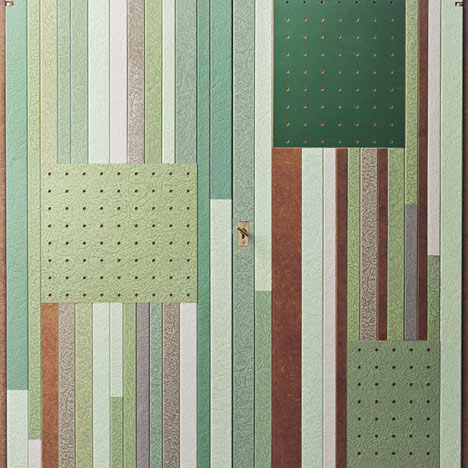
Masonite: Memoriam by Folkform for Svenskt Tenn
Swedish designers Folkform have used 80-year-old samples of hardboard in these cabinets for Swedish interiors brand Svenskt Tenn.
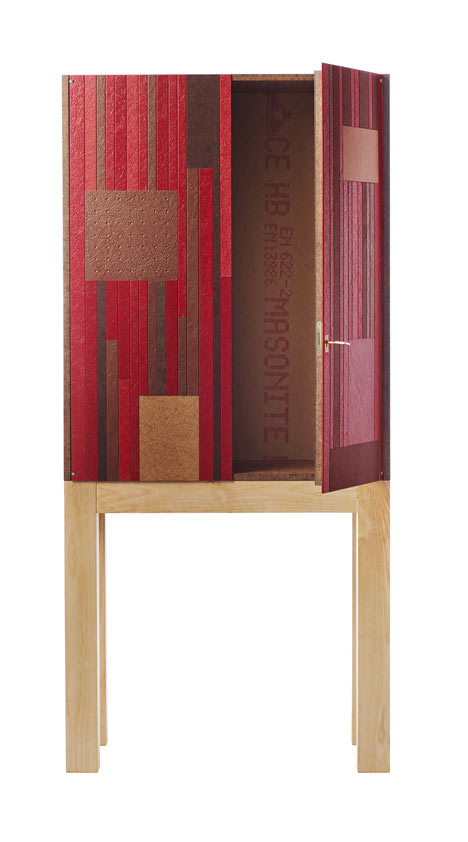
The cabinets are made from pieces of Masonite produced in 1929, when the hardboard was first manufactured on a large scale.
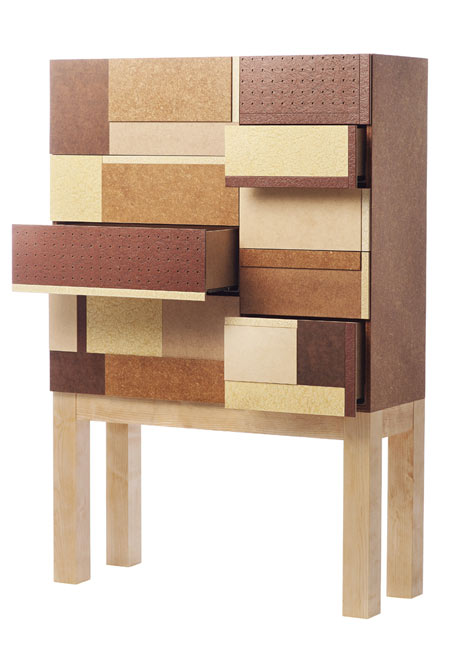
Folkform's Anna Holmquist and Chandra Ahlsell combined the original samples with a few of the final sheets to roll off the production line at Sweden's last Masonite manufacturer, which closed in April 2011.
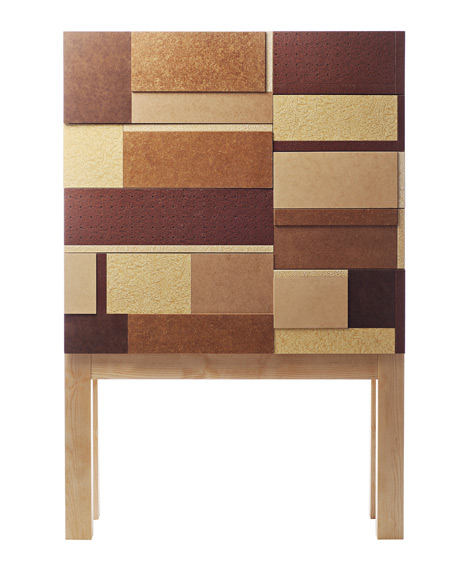
The cabinets were displayed in the Svenkst Tenn store in Stockholm alongside some of the brand's furniture and textiles from the same period.
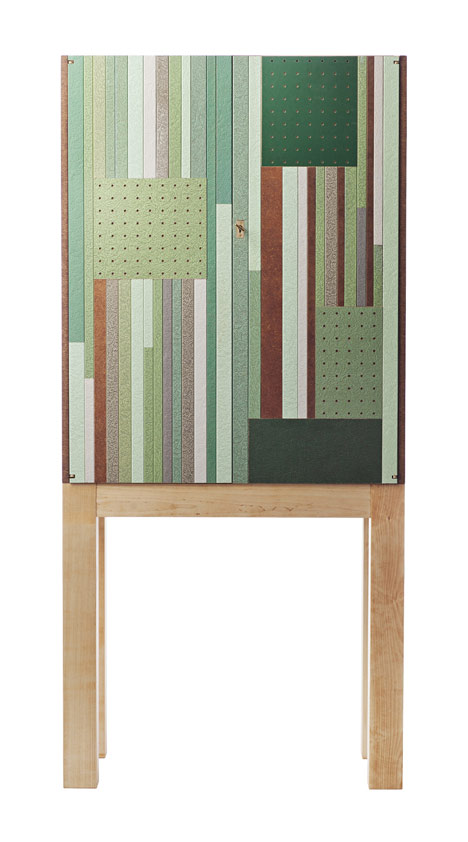
See all our stories about Folkform »
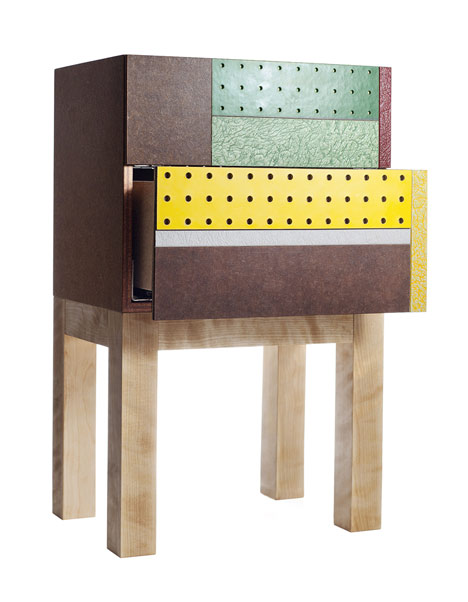
Photographs are by Alexander Lagergren.
Here's some more information from Folkform:
Swedish designers Folkform celebrate Masonite in Svenskt Tenn exhibition
The exhibition ‘’Masonite: Memoriam’’, which opened today, displays a series of cabinets exclusively designed for Svenskt Tenn by Anna Holmquist and Chandra Ahlsell of the Swedish design duo Folkform. In the cabinets, original Masonite hardboard from 1929 are combined with the last few sheets that was made before Sweden’s last Masonite manufacturer shut down in April 2011.
“When the Masonite manufacturer in Rundvik closed, it was the last of its kind, a downturn that we want to help counteract by maintaining domestic production as far as we can and by highlighting quality craftsmanship in our exhibitions, says Thommy Bindefeld, Marketing Manager at Svenskt Tenn.”
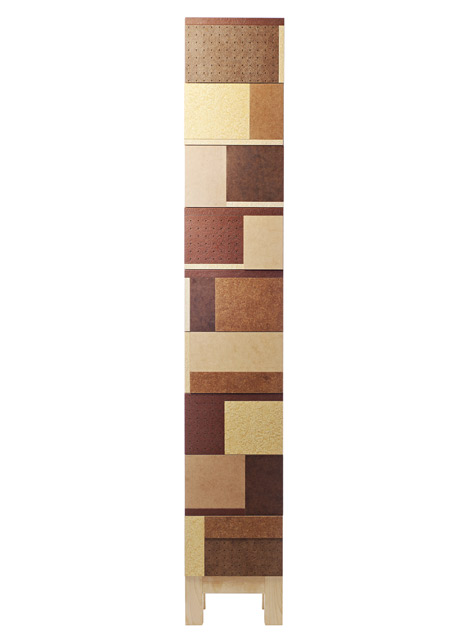
The exhibition features a gathering between the past and the present. Folkform’s four different models of cabinets are displayed along with a number of Svenskt Tenn objects from the same period, including the “Nationalmuseum” cabinet and textile print Terrazzo, both by Josef Frank.
“Svenskt Tenn is one of few furniture and interior design firms from the era when the Masonite factory was established, which is still active today,” says designer Anna Holmquist, who founded Folkform along with Chandra Ahlsell. “We wish more people will open their eyes to the fact that production and skills are rapidly leaving the country. Today it is unusual for us as designers to work with Sweden-based production as an option.’’
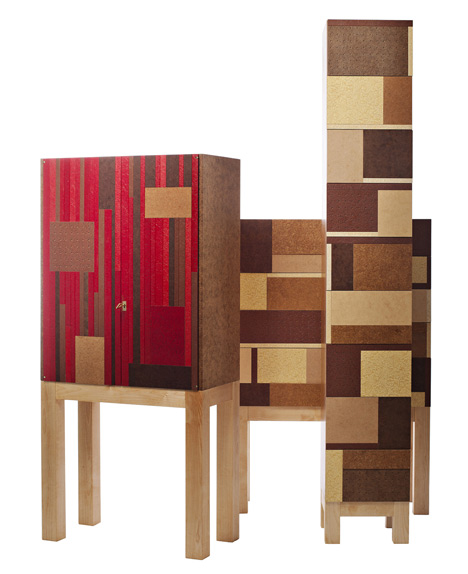
The Masonite sheets that the cabinets were built from were recently discovered in an old warehouse. These were the very first product samples from 1929, with
different colors and textures. In the cabinets, they are combined with new pieces of board manufactured just before the factory was closed down. Each cabinet is unique and will be sold after the exhibition, price range SEK 16,000-75,000.
Folkform, who have been experimenting with Masonite for about ten years, have had a close collaboration with the Rundvik manufacturer in northern Sweden for a long time. The Folkform duo got to know each other at the Stockholm University College of Arts, Crafts and Design, where they created their renowned furniture with flowers pressed into Masonite.
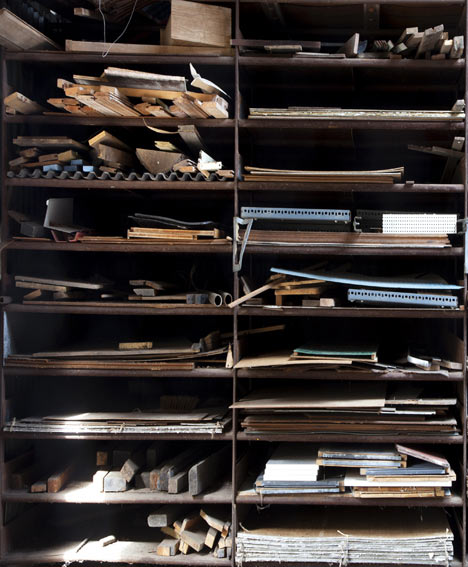
Svenskt Tenn was founded in 1924 by designer and drawing teacher Estrid Ericson (1894-1981). In 1934, she began her lifelong collaboration with Josef Frank, already a well-known architect, urban planner and designer, who had recently left Austria to take up residence in Sweden. Together, the two laid the foundations for the interior design philosophy that Svenskt Tenn has since come to represent, combining Estrid Ericson's artistic talent and entrepreneurial spirit with Josef Frank's inspired and timeless designs to form what was soon to become a highly successful concept. Svenskt Tenn is owned by the Kjell and Märta Beijer Foundation.